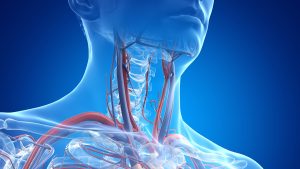Articles / Using HbA1c Wisely

Glycated haemoglobin (HbA1c) has been used for monitoring patients with established diabetes for many years but its diagnostic application is a more recent development. This article provides some background to the test, explains dual reporting of results and discusses the use of HbA1c in the diagnosis and monitoring of diabetes.
Adult haemoglobin is predominantly (97% of total) HbA. HbA1c is formed when a glucose molecule non-enzymatically attaches to the N-terminal valine of the β-chain of HbA.
The amount of HbA1c formed is directly proportional to the average plasma glucose concentration during the 120-day life span of the erythrocyte, with recent plasma glucose contributing more than earlier concentrations. HbA1c is therefore a reflection of the average glycaemia over roughly the preceding 6–8 weeks and has a vital role in assessing the risk of an individual developing the complications of diabetes.1

TIAs and Carotid Stenosis

HSDD - What is it & How is it Managed?

Functional Gastrointestinal Disorders in Infants (FGIDs) – Practical Advice for GPs

Using the New RSV Vaccine in Practice



Strongly support
Somewhat support
Neither support nor oppose
Somewhat oppose
Strongly oppose
Listen to expert interviews.
Click to open in a new tab
Browse the latest articles from Healthed.
You have completed the Educational Activities component of this resource.
Select ‘Confirm & claim CPD‘ to confirm you have engaged with this resource in its entirety and claim your CPD.
You will be taken to explore further CPD learning available to you.